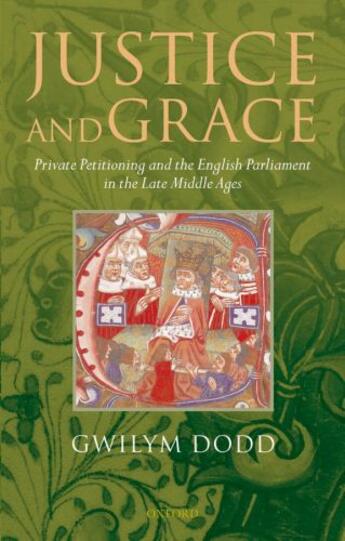Des idées de lecture pour ce début d'année !
Passionné(e) de lecture ? Inscrivez-vous
gratuitement ou connectez-vous pour rejoindre la
communauté et bénéficier de toutes les fonctionnalités du site !

Focussing on the key role of the English medieval parliament in hearing and determining the requests of the king's subjects, this ground-breaking new study examines the private petition and its place in the late medieval English parliament (c.1270-1450). Until now, historians have focussed on the political and financial significance of the English medieval parliament; this book offers an important re-evaluation placing the emphasis on parliament as a crucial element in the provision of royal government and justice. It looks at the nature of medieval petitioning, how requests were written and how and why petitioners sought redress specifically in parliament. It also sheds new light on the concept of royal grace and its practical application to parliamentary petitions that required the king's personal intervention.
The book traces the development of private petitioning over a period of almost two hundred years, from a point when parliament was essentially an instrument of royal administration, to one where it was self-consciously dispatching petitions as the highest court of the land. Gwilym Dodd considers not only the detail of the petitionary process, but also broader questions about the government of late medieval England. His conclusions contribute to our understanding of the nature of medieval monarchy, and its ability (or willingness) to address local difficulties, as well as the nature of local society, and the problems that faced individuals and communities in medieval society.
Il n'y a pas encore de discussion sur ce livre
Soyez le premier à en lancer une !

Des idées de lecture pour ce début d'année !

Si certaines sont impressionnantes et effrayantes, d'autres sont drôles et rassurantes !

A gagner : la BD jeunesse adaptée du classique de Mary Shelley !

Caraïbes, 1492. "Ce sont ceux qui ont posé le pied sur ces terres qui ont amené la barbarie, la torture, la cruauté, la destruction des lieux, la mort..."